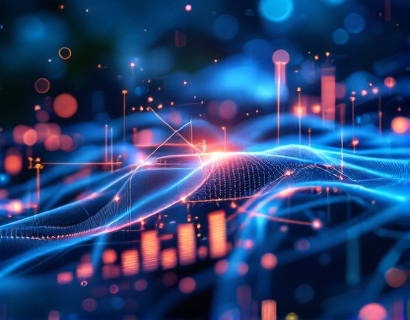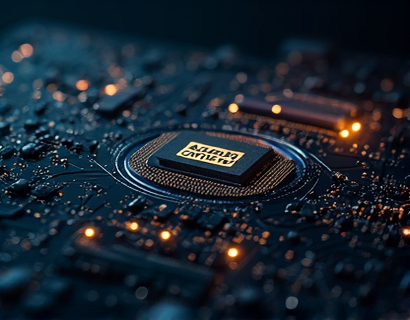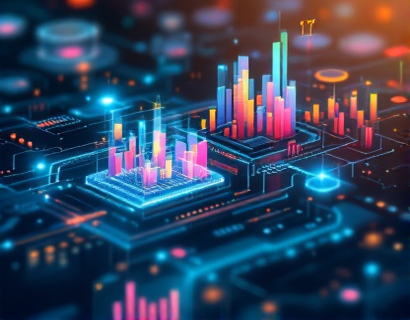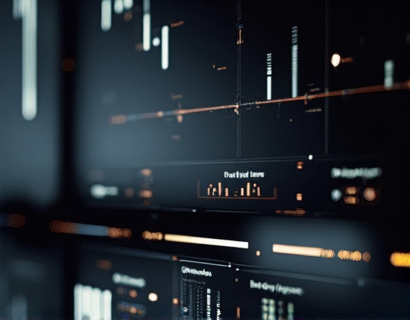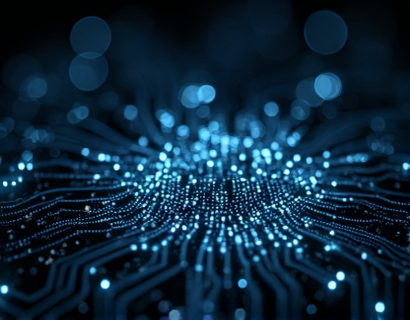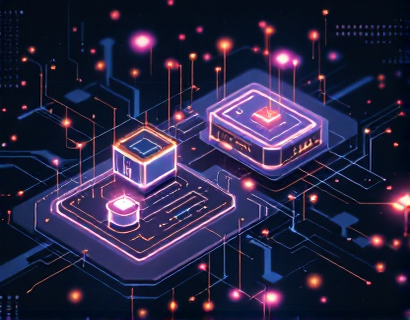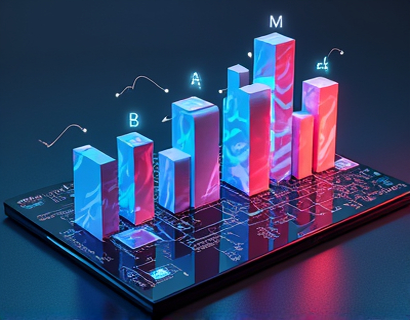Blockchain Oracle Management: Revolutionizing Decentralized Applications with Advanced Data Integration and Smart Contract Solutions
In the rapidly evolving landscape of blockchain technology, the role of oracle management has emerged as a critical component for the success of decentralized applications (dApps). Oracle management involves the integration of external data sources into blockchain networks, enabling smart contracts to access and utilize real-time data. This integration is essential for enhancing the functionality and reliability of dApps, as it bridges the gap between the blockchain's inherent limitations and the vast amount of external data required for complex operations. This article delves into the transformative software solutions that are revolutionizing oracle management, focusing on advanced data integration and smart contract capabilities. By optimizing these processes, the platform ensures secure and reliable interactions within decentralized applications, unlocking the full potential of blockchain technology.
The traditional approach to oracle management often involves manual data feeding and manual intervention, which can lead to delays, inaccuracies, and security vulnerabilities. These issues not only hinder the performance of dApps but also undermine user trust. To address these challenges, innovative software solutions have been developed to automate and secure the oracle management process. These solutions leverage cutting-edge technologies such as machine learning, cryptography, and decentralized networks to create a robust and efficient oracle ecosystem.
Advanced Data Integration
One of the key advancements in oracle management is the implementation of advanced data integration techniques. These techniques enable dApps to seamlessly connect with a wide range of external data sources, including APIs, databases, and IoT devices. By automating the data retrieval process, these solutions reduce the risk of human error and ensure that smart contracts have access to the most up-to-date and accurate information. This is particularly crucial for applications in finance, supply chain management, and IoT, where real-time data is paramount.
For instance, machine learning algorithms can be employed to predict and preprocess data, filtering out noise and anomalies before it is fed into the blockchain. This not only improves the quality of data but also enhances the efficiency of smart contracts by reducing the computational load. Additionally, blockchain-based data storage solutions, such as InterPlanetary File System (IPFS), provide a decentralized and tamper-proof way to store and retrieve large volumes of data, ensuring data integrity and availability.
Enhanced Smart Contract Capabilities
Smart contracts are the backbone of decentralized applications, executing predefined actions based on specific conditions. However, their effectiveness is heavily dependent on the quality and reliability of the data they receive from oracles. Advanced oracle management solutions enhance smart contract capabilities by providing more robust and secure data feeds. This allows smart contracts to make more informed decisions, execute transactions more accurately, and respond to external events in real-time.
One significant improvement is the development of self-verifying oracles, which use cryptographic proofs to ensure the authenticity and integrity of the data they provide. These proofs can be verified by the smart contract itself, eliminating the need for trust in a central authority. Furthermore, multi-oracle aggregation techniques combine data from multiple sources to provide a more comprehensive and reliable input for smart contracts. This approach not only increases the accuracy of data but also enhances the resilience of the system against single points of failure.
Security and Trust
Security is a paramount concern in oracle management, as any vulnerability can lead to significant financial losses and undermine the trust in decentralized applications. Advanced oracle management solutions address these concerns through a multi-layered security approach. This includes the use of advanced cryptographic techniques, decentralized validation mechanisms, and continuous monitoring for potential threats.
Decentralized validation ensures that data provided by oracles is verified by multiple nodes within the network, reducing the risk of malicious data injection. Additionally, zero-knowledge proofs and other privacy-preserving technologies allow for secure data sharing without compromising user privacy. These security measures not only protect the integrity of the blockchain but also build confidence among users and developers.
Interoperability and Scalability
As the blockchain ecosystem continues to grow, the need for interoperability and scalability in oracle management becomes increasingly important. Advanced solutions are designed to work across different blockchain platforms, enabling seamless data exchange and smart contract execution across various networks. This interoperability is crucial for building complex decentralized systems that leverage the strengths of multiple blockchains.
Scalability is another critical aspect, as the volume of data and transactions in dApps can grow exponentially. Solutions that employ sharding, off-chain computation, and layer 2 protocols help manage large-scale data processing and transaction execution efficiently. These techniques ensure that the oracle management system can handle high throughput without compromising performance or security.
Use Cases and Industry Impact
The impact of advanced oracle management solutions extends across various industries, each with its unique set of challenges and opportunities. In finance, for example, real-time data integration is essential for decentralized exchanges (DEXs) and lending platforms, enabling accurate pricing, risk assessment, and automated trading. In supply chain management, oracles can provide transparent and tamper-proof tracking of goods, enhancing traceability and reducing fraud.
In the IoT space, oracles enable devices to interact with blockchain networks, facilitating decentralized data collection and processing. This has profound implications for smart cities, industrial automation, and environmental monitoring. By providing reliable and secure data feeds, advanced oracle management solutions empower these industries to harness the full potential of blockchain technology.
Future Trends and Innovations
The field of oracle management is continually evolving, with new innovations on the horizon. One promising area is the integration of artificial intelligence (AI) to further enhance data processing and decision-making capabilities of smart contracts. AI-driven oracles can predict trends, identify patterns, and make proactive decisions, adding a new dimension of intelligence to decentralized applications.
Another area of interest is the development of decentralized oracle networks, where multiple oracles collaborate to provide data. These networks can self-organize and self-heal, ensuring high availability and fault tolerance. Additionally, the exploration of new consensus mechanisms and governance models will continue to improve the reliability and efficiency of oracle management systems.
As the blockchain ecosystem matures, the demand for robust and scalable oracle management solutions will only grow. Developers and businesses that adopt these advanced technologies will be better positioned to build innovative and trustworthy decentralized applications, driving the adoption of blockchain across various sectors.







